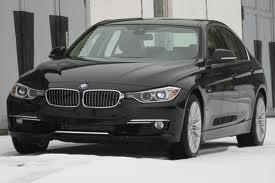As part of Gov. Jay Inslee’s first budget proposal Thursday, he pushed for alterations to many of the state’s current tax exemptions – including the tax exemption placed on the trade-in of cars, boats and other items. While the exemption applies to many items – anything where a trade-in might occur, really – it mainly benefits car dealerships, by inspiring would-be car buyers to trade in their used cars rather than sell them to a private buyer. In theory, the tax exemption – which traces back to an overwhelmingly approved 1984 voter initiative – is designed encourage the purchase of new items (again, specifically cars).
Sightline Institute Policy Director Eric de Place – who is no fan of the trade-in exemption – has explained it like this in the past:
As the name implies, the law exempts trade-ins from sales tax by defining the purchase price of an item, the price eligible for taxation, as the price of the item minus the price of a trade-in item. So if I trade in a $5,000 used car in order to buy a $20,000 new car, I only pay taxes on the $15,000 balance.
In Inslee’s budget proposal, the adjustment to the trade-in exemption is described like this: “This proposal would limit the exclusion of trade-in value from retail sales and use tax to $10,000 for motor vehicles, recreational vehicles, boats and other items.”
Under estimates provided in Inslee’s budget, this maneuver would generate $94.8 million in general fund dollars for the 2013-2015 biennium, and $106.9 million for the 2015-2017 biennium. Inslee’s budget estimates the change would impact roughly 85,000 taxpayers.
While de Place has vehemently lobbied for doing away with the trade-in exemption all together, he tells Seattle Weekly that Inslee’s proposal is “certainly an improvement over the status-quo.”
For non policy wonks, perhaps a brief explanation of Inslee’s proposal is in order. The first important aspect to understand is, using de Place’s description of the trade-in exemption from above, nothing would change. Inslee’s proposal simply limits the trade-in exemption to $10,000 – meaning a purchaser would still get it up to that value. It’s only trade-ins valued at more than $10,000 that would be affected, and even then it’s only the total amount above $10,000 that would be subject to state sales tax.
In essence, de Place says Inslee’s proposal would only “eliminate the effect on the most expensive purchases.”
“It would still exist for Honda Civics, but not BMWs,” he says.
As mentioned, Inslee estimates limiting the exemption to $10,000 will generate roughly $94.8 million for the state over the next biennium. By contrast, says de Place, doing away with the exemption all together could generate “around $340 million.”
Still, he says, the governor’s proposal “isn’t peanuts.”
With roughly $340 million potentially at stake, why wouldn’t a cash-strapped state like Washington simply do away with the exemption in its entirety? Not surprisingly, de Place presumes the answer is politics.
Put more simply, the vast majority of car purchasers – and more importantly voters – won’t be affected, meaning they’re unlikely to fight it. It’ll be folks making high-end car purchases and trading in cars on a regular basis that feel the brunt.
And, perhaps more importantly, Inslee’s proposal doesn’t take as much away from car dealers as doing away the entire trade-in exemption would.
“Rather than clawing back $340 million from car dealership, he’s clawing back 100 million,” says de Place. “He’s not inflicting as much pain on car dealerships as he might.”
Still, de Place wouldn’t be shocked to see a push-back from Washington’s car dealers.
“I imagine that the car dealers are not going to like the slight leveling of the playing field,” says de Place. “They’re a politically influential group.”









